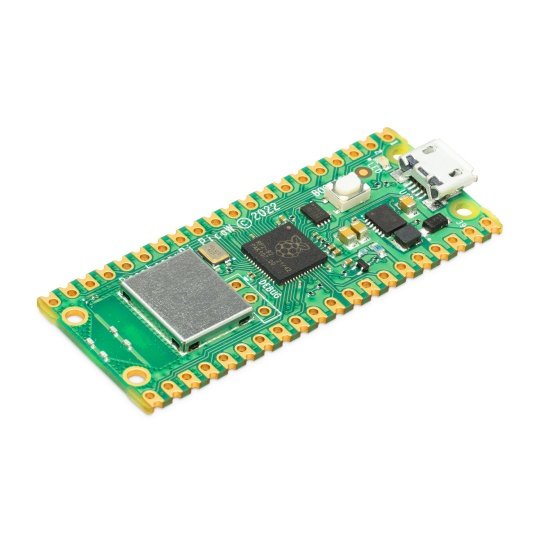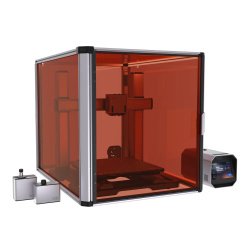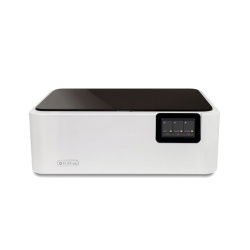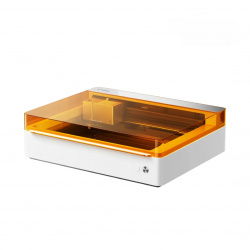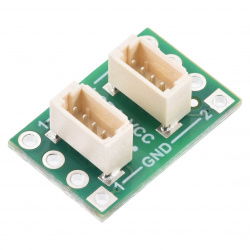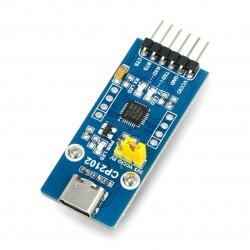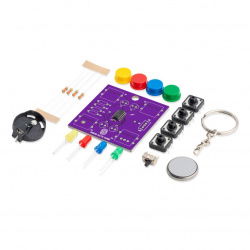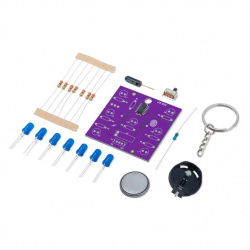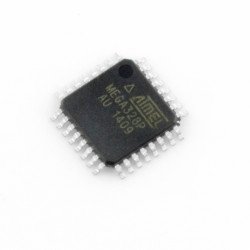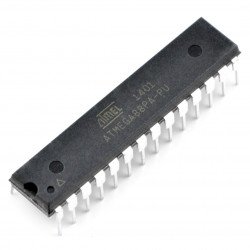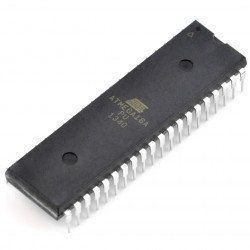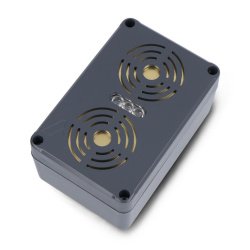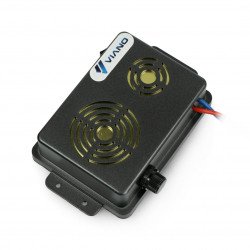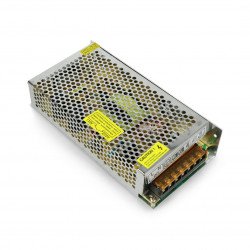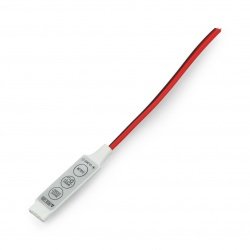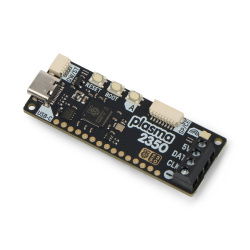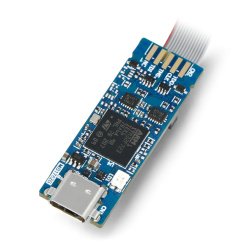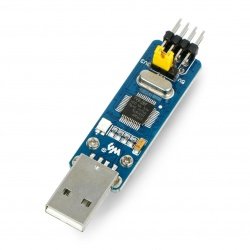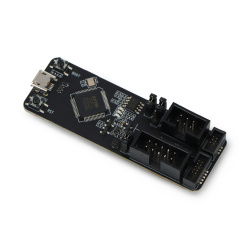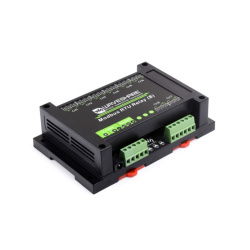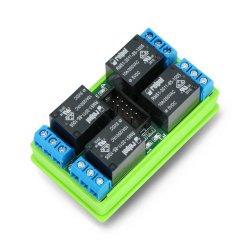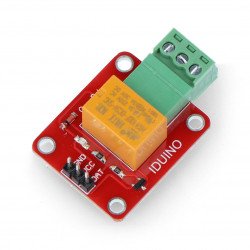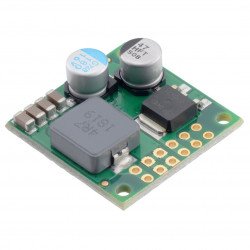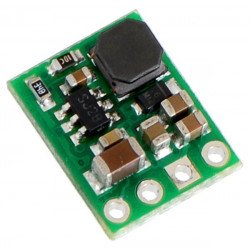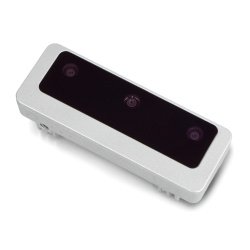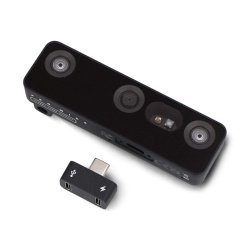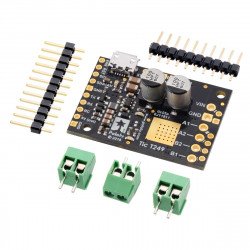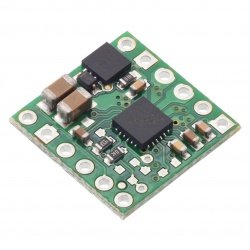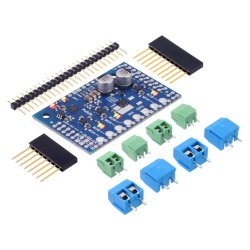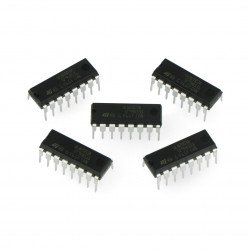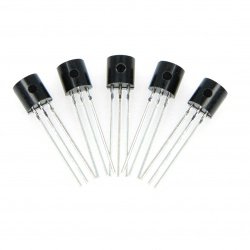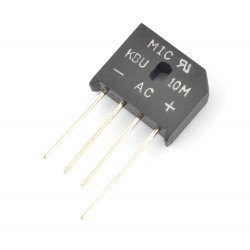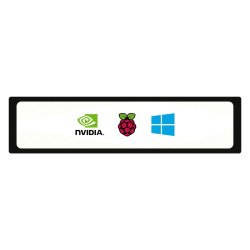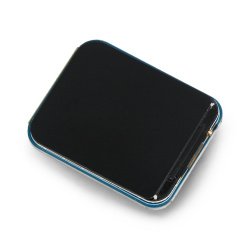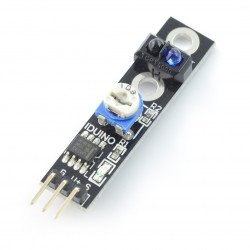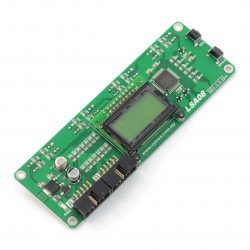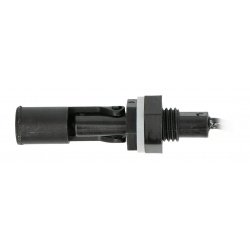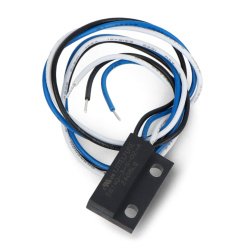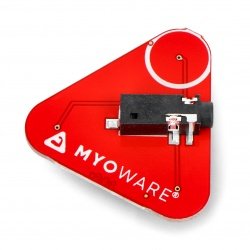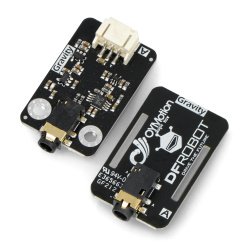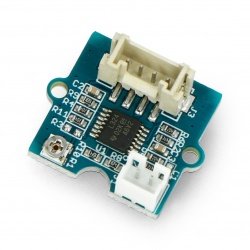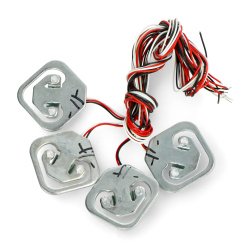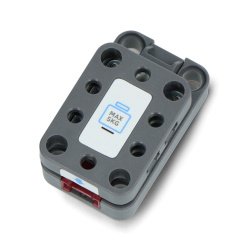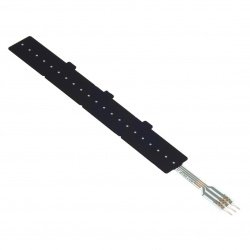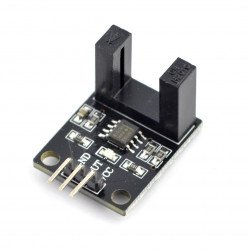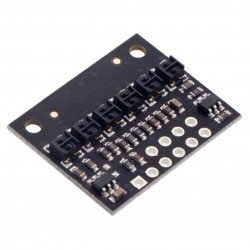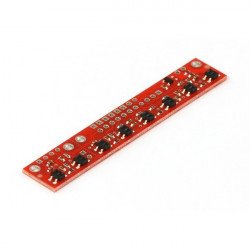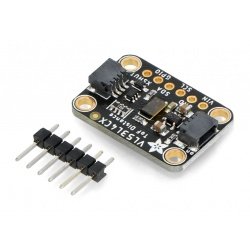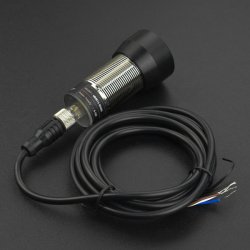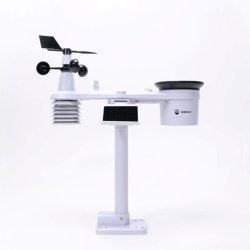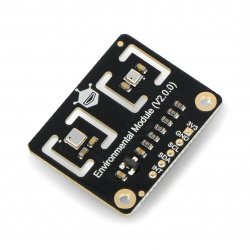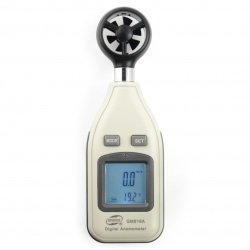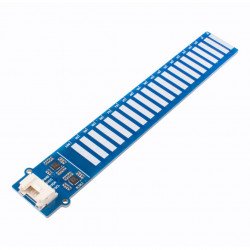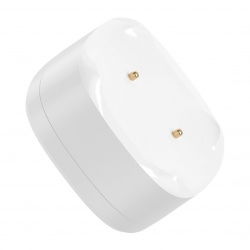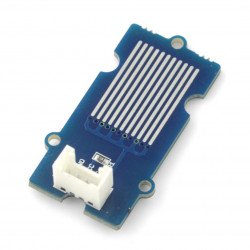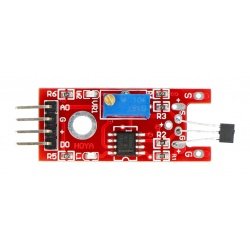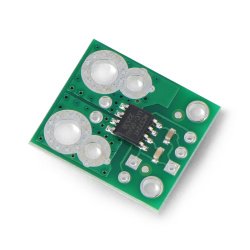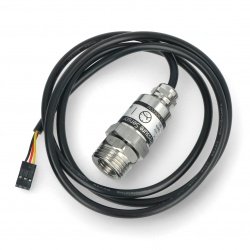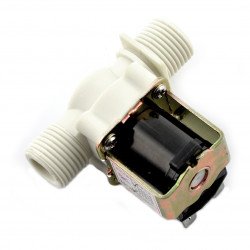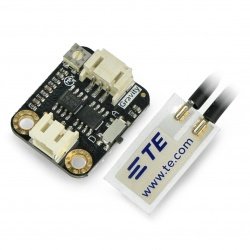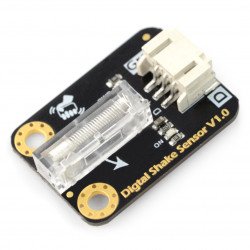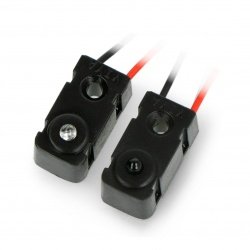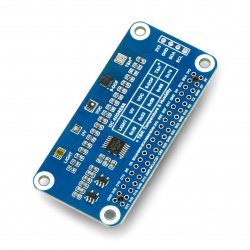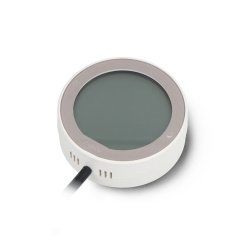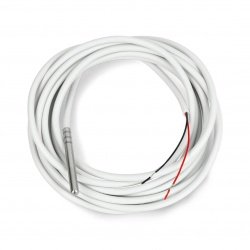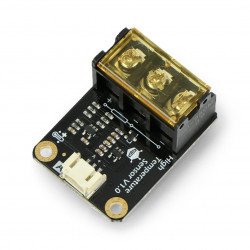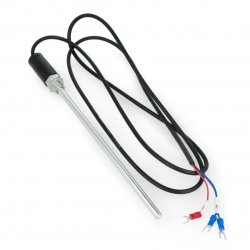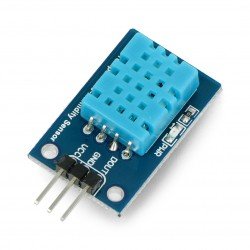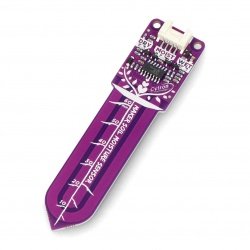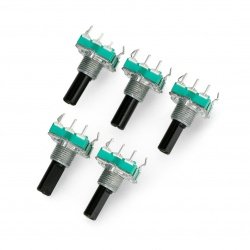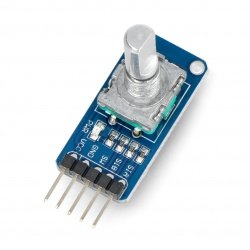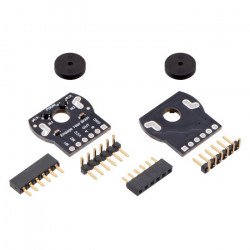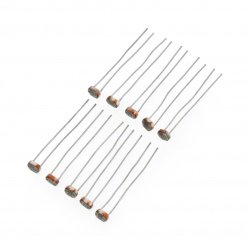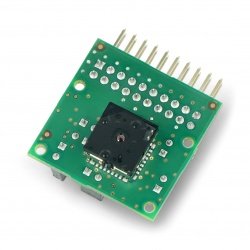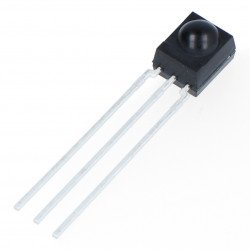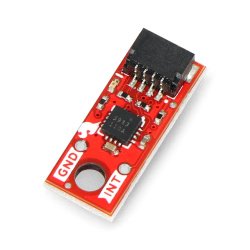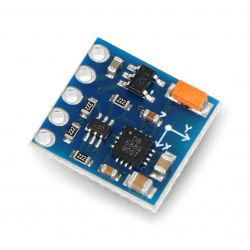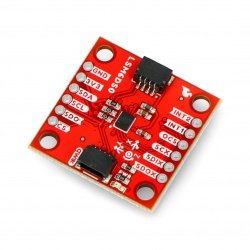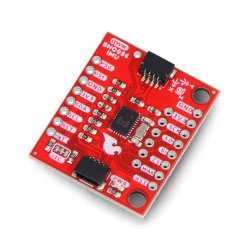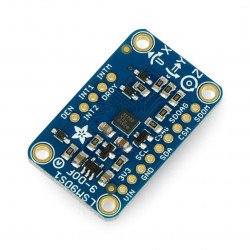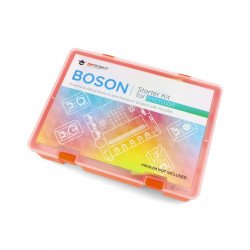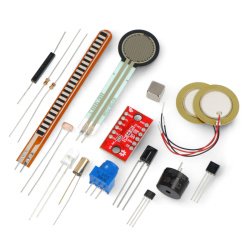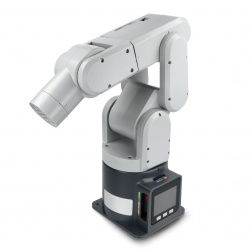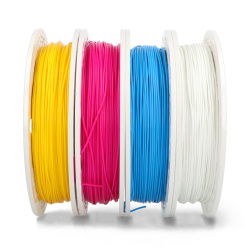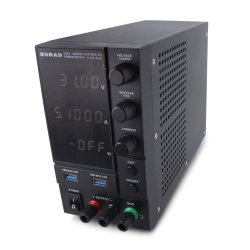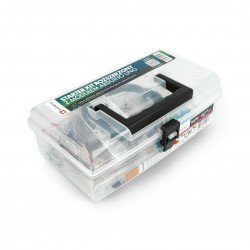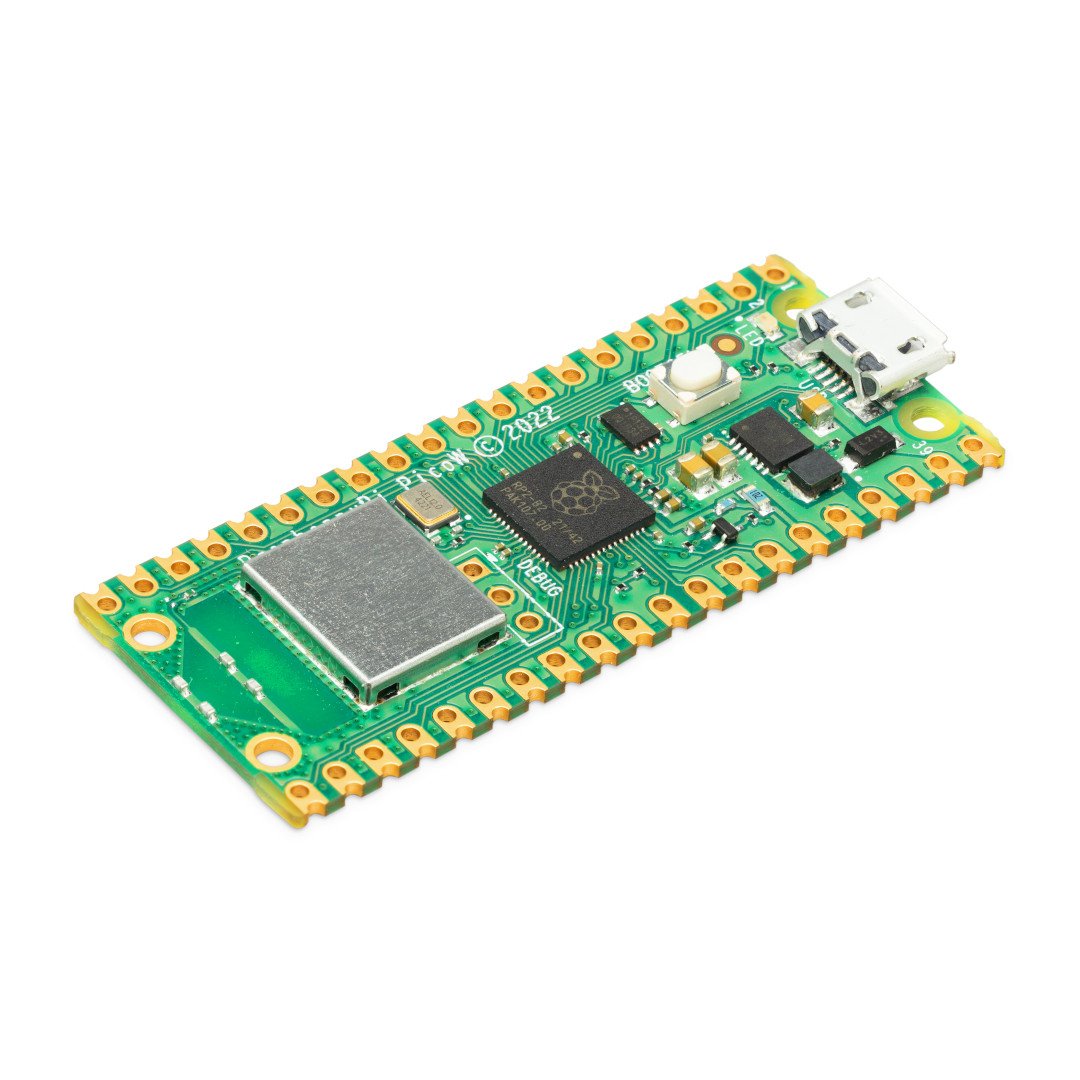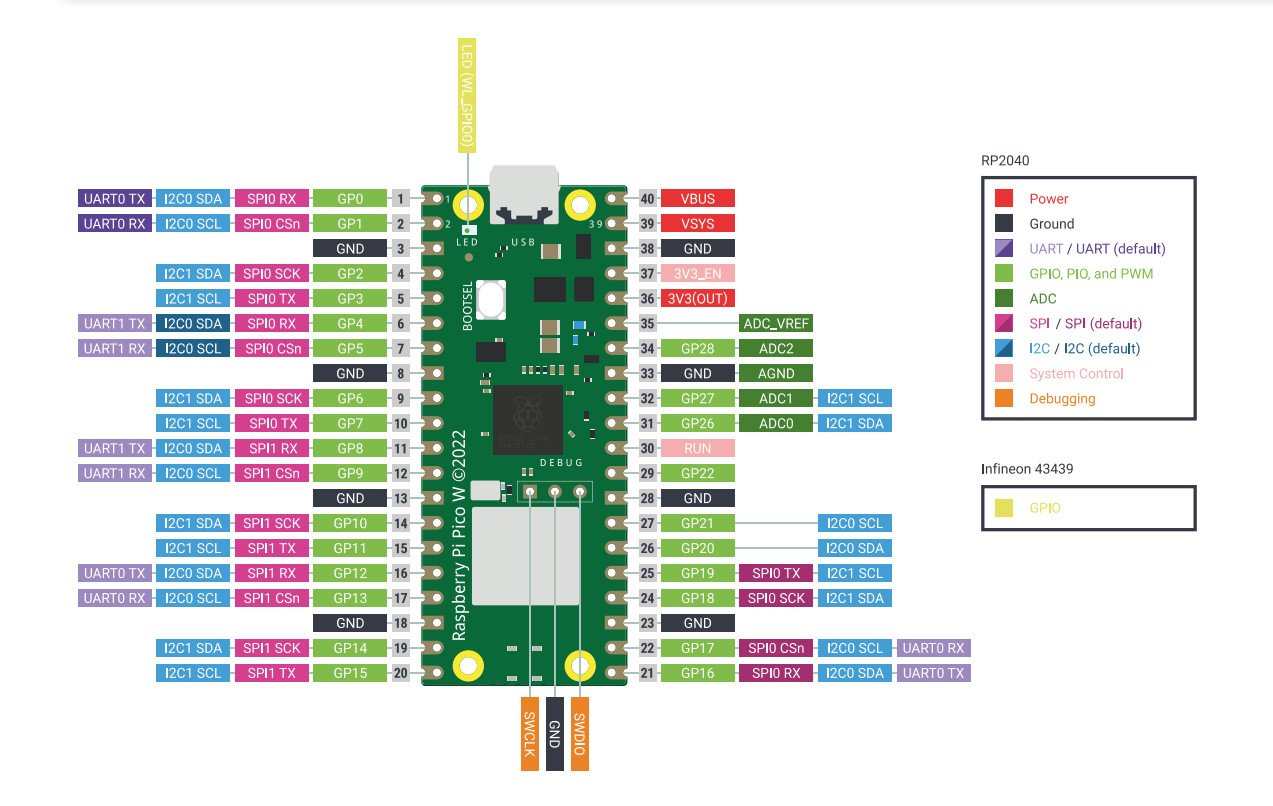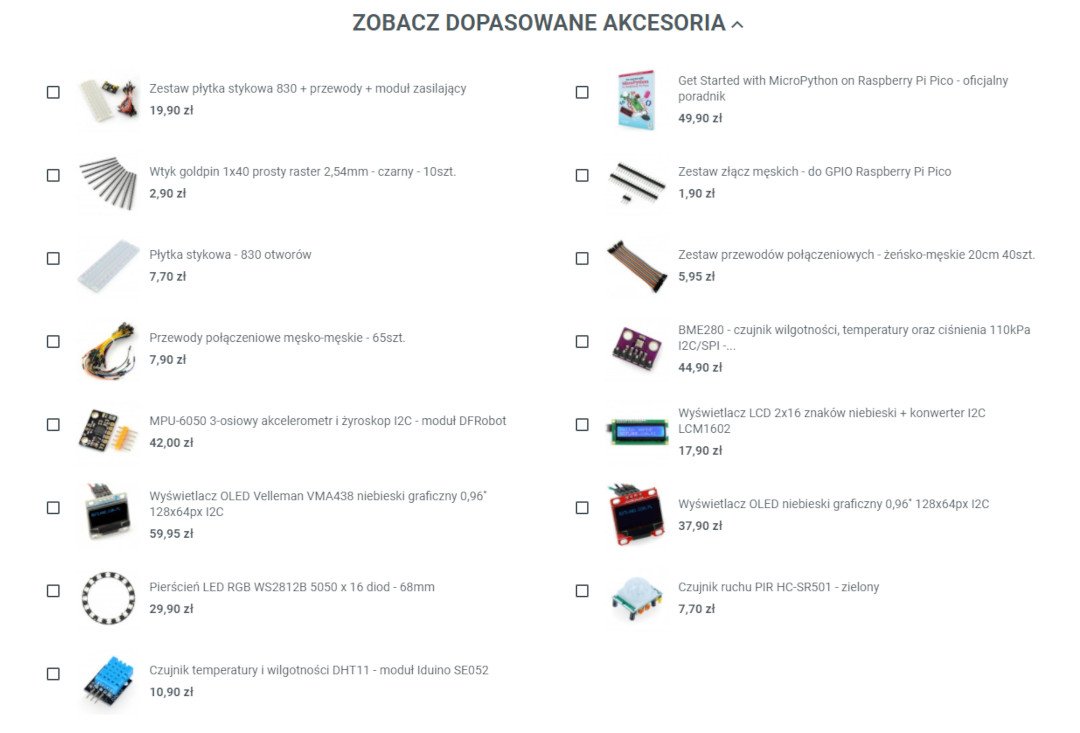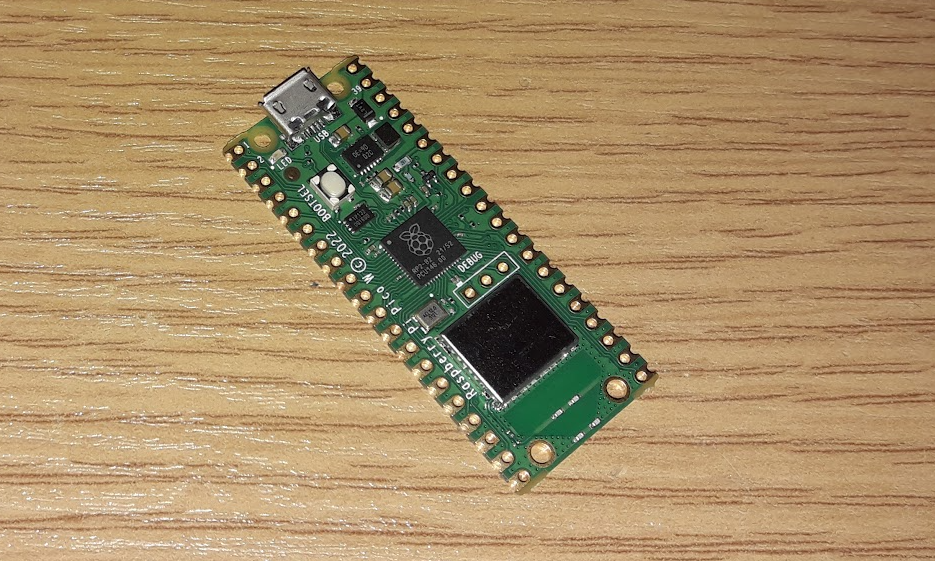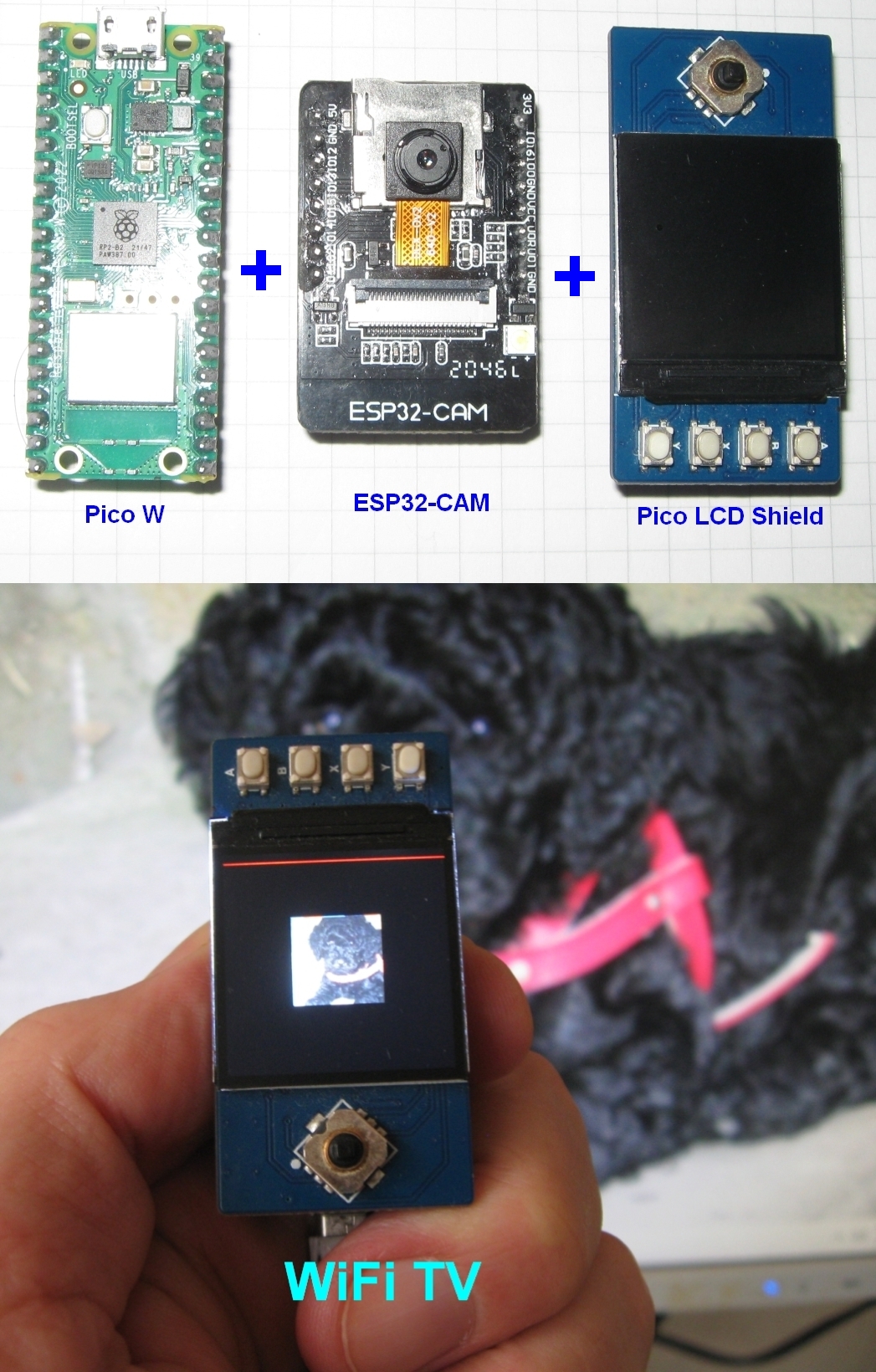- Reduced price
- SPECIAL OFFERS
Product description: Raspberry Pi Pico W - RP2040 ARM Cortex M0 + CYW43439 - WiFi
A small Raspberry Pi Pico module equipped with the proprietary Raspberry RP2040 microcontroller with the CYW43439 wireless communication system. RP2040 is a dual-core ARM Cortex M0 + chip clocked at 133 MHz, with 264 KB of SRAM and 2 MB of Flash memory. Thanks to the CYW43439, WiFi IEEE 802.11 b / g / n wireless communication is possible. The system has 26 GPIO pins that work with a voltage of 3.3 V, and a built-in temperature sensor. The Raspberry Pi Pico is programmed in C / C ++ and MicroPython via the microUSB connector.
Pins of the Raspberry Pi Pico W module
The Raspberry Pi Pico W is equipped with 26 GPIO pins. Among them you can find interfaces such as: 2x SPI, 2x I2C, 2x UART, 3x ADC 12-bit, 16x PWM. The module is additionally equipped with 8 programmable IO pins (PIO), which are designed to support non-standard peripheral devices.
Raspberry Pi Pico W power supply
The board has a built-in microUSB port, which is used both for power supply and communication of the Raspberry Pi Pico W board with a computer. For proper operation, the module requires a 5V power supply. The board can also be powered from the VSYS pin with voltage from 1.8 V to 5.5 V , using, for example, a 3.7 V Li-Pol battery or a 3x AA battery.
|
The logical part of the Raspberry Pi Pico works with a voltage of 3.3 V. |
Raspberry Pi Pico W programming
The Raspberry Pi Pico W is programmed in C / C ++ or MicroPython . In order to upload the program to the board, press and hold the BOOTSEL button and connect the Raspberry Pi Pico to the computer with a microUSB cable. The computer will detect the module as a USB mass storage device called RPI-RP2, the program file should be dragged and dropped into the newly found volume. The manufacturer provides an SDK repository for the C / C ++ and MicroPython programming languages, which can be found in the useful links below.
Getting started with MicroPython
The Raspberry Pi Pico W is programmed by connecting to a computer with a USB cable by dragging and dropping the program code file to the newly created volume. There is also a sample UF2 file for download to help you get started with MicroPython.
- Download the MicroPython UF2.
- Press and hold the BOOTSEL button and plug the board into the USB port of your Raspberry Pi or computer.
- Release BOOTSEL when Pico is connected to your computer.
- The Raspberry Pi Pico will be detected as a mass storage device with volume RPI-RP2.
- Drag and drop the MicroPython UF2 file to the RPI-RP2 volume.
- Pico will restart, MicroPython will now be used.
- You can access REPL and MicroPython via the serial USB port.
Hello World in C / C ++
The first program any programmer will write is "Hello World", in this case the Raspberry Pi Pico W will be programmed via the Raspberry Pi 4B 's USB serial port.
- Download the UF2 file "Hello World".
- Press and hold the BOOTSEL button and connect the Raspberry Pi Pico to the Raspberry Pi's USB port.
- The board is detected as a mass storage device with volume RPI-RP2.
- Drag and drop the UF2 file to the RPI-RP2 volume.
- Pico will restart.
- Open a terminal on the Raspberry Pi 4B and run the commands:
sudo apt install minicom minicom -b 115200 -o -D / dev / ttyACM0
- You should see "Hello World" listed in the terminal window.
Additional accessories for the Raspberry Pi Pico W
Check out the additional accessories we have prepared for the Raspberry Pi Pico W module. Accessories can be found in the See matching accessories section, under the photo gallery. By choosing these accessories, you can follow the manufacturer's examples from the SDK documentation for C and Python.
Raspberry Pi Pico W specification
| Parameter | Value |
|---|---|
| System | Raspberry Pi RP2040 |
| Core | ARM Cortex-M0 + Dual-Core 133 MHz |
| Wireless communication system | CYW43439 |
| Wireless communication | WiFi 2.4 GHz IEEE 802.11 b / g / n |
| SRAM memory | 264 kB |
| Flash memory | 2 MB |
| Leads | 40-pin / 23 GPIO digital + 3 ADC pins |
| Interfaces | 2x UART, 2x I2C, 2x SPI, up to 16 PWM channels |
| Supply voltage | 5V (USB) |
| Working voltage of the logical part | 3.3 V |
| Power / data connector | microUSB |
| Dimensions | 51.3 x 21 x 3.9 mm |
Useful links |
